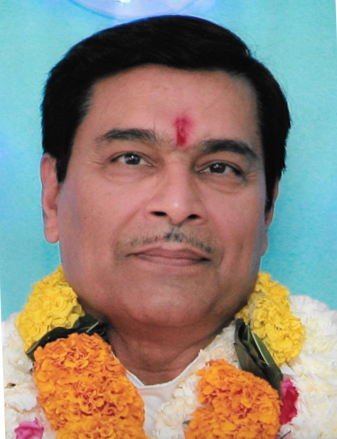From a satsang with Pt Balram Persad, Spiritual Leader, Om Shakti Mandali
Devotional music and song bring fulfilling, uplifting experiences of God’s presence, and they result in a state of joyfulness. The challenge for each devotee is to truly experience this knowledge. If we experience the bliss of satsang; if we experience the joy of attending temple; if we experience the bliss of praying to the Lord, then no one could turn us away from these activities because we would have tasted their essence. The purpose of religion, after all, is the achievement of divine experiences.
The sages say the world is Naad Brahm; the world is vibratory by nature. Shabda Brahm, the first manifestation of God is in the ether; it is transcendental sound. Sound is a guna or quality of ether. There are many kinds of sounds: Vaikhari is vocalising, audible, using words. Madhyamaa is sound from the throat, unexpressed; it may also be words in the mind. Pashyanti is sound that can be seen and visualised. It is a subtle wave form of sound; it emanates from the heart chakra and, some yogis say, from the navel chakra, which is also the source of the Vedas.
What are the benefits of devotional music?
- When we sing or listen to peaceful, devotional music, we break the three granthis, or knots of ignorance. They are the Brahma granthi, Vishnu granthi and the Rudra or Shiva When we glorify the Lord, ignorance is destroyed, and then enlightenment occurs.
- Devotional sounds purify the naadis (channels of bioenergy in the subtle body); this is called naadi shuddhi (purifying the energy channels, of which there are 72,000). There are vital energy vortices in the subtle body, which vibrate and produce certain astral sounds, leading to the manifestation of spiritual powers, which then enable one to have great control over the mind and senses. It thus elevates one’s consciousness.
- Music, glorification of God and bhajan also awaken the kundalini or the primordial cosmic energy lying dormant in the muladhaar chakra, the energy vortex at the base of the spine.
- Peaceful music also purifies the praanamaya kosha, the vital life force sheath.
- When we sing bhajans, it causes a divine ecstatic mood. This is called bhav samaadhi.
- When we sing and play music, it also produces ekagra chit, a concentrated, one-pointed mind. Hanuman Baba, the mind principle, would constantly chant the name of Shree Raam at all times.
- It also creates chit shuddhi, purity and elevation of the consciousness.
- Bhajan, kirtan and mantra recitation destroy the vasanas and the trishnas, which are unhealthy desires and cravings.
- They destroy the main doshas or faults and impurities: mala, vikshepa and aavarana, physical and mental impurity, disturbances and ignorance of the real self.
- Devotional music eradicates the five kleshas, or afflictions that we all possess: avidya, ignorance; asmita, egoism; raag and dvesha, likes and dislikes, abhivinesh, fear of death.
- It destroys rajas and tamas, passion and inertia; and increases sattva, purity, uplifting thoughts and actions.
- The bhajans, kirtan and mantras help us overcome the mind, body and environment.
- Music soothes the brains and nerves. It reduces nervousness, anxiety and other problems associated with a weak nervous system.
- When we sing, it energises the body, it brings solace and comfort. It removes stress, depression and tension.
- Studies and anecdotes have shown the power of music to heal. Music produces certain chemicals, endorphins, that produce a feeling of wellbeing and act as natural painkillers. Studies have also shown that music exercises help improve speech, autism, spinal cord injuries, cerebral palsy, kidney stones and multiple sclerosis.
- Music relaxes us, puts us in a different frame of mind, decreasing negative thoughts. It affects one’s mood and performance.
Let us listen to soothing, uplifting devotional music, which, as we can see, will benefit us tremendously. Let us also learn to play the musical instruments. Let us sing the mantras and bhajans and reap the benefits of their positive power in our lives.



